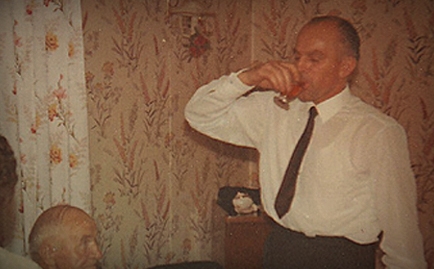
Most of us remember that day when we realized, Wow, my family is profoundly messed up. Maybe it happened during or immediately following a major holiday—it usually does. If you can’t remember a time, or even a fleeting thought of this nature, just wait … it’ll happen. All of our families, even the healthiest and most godly, have deep-rooted secrets, patterns and behaviors that shape us individuals just as much as they shape us as a tiny band of broken people God has united.
I remember my day. And I remember so many days since then when I look at my battered but relatively unscathed self in the shadow of generations of sin, wickedness of biblical proportions, mental illness and general suffering, and know it is only by the grace of a Savior that I’m here and serving the God who pursued me even through my ancestors.
But this gratitude doesn’t come easily. It has only come by determination and courage, by clawing at the roots of my family tree, no matter how deep and twisted they grow. Even if I’d prefer they stay hidden and packed with dirt, I feel I cannot be free of these sins until I name them and let Christ shake them out of me or transform them for His glory.
Generational sin and blessing affects us all, whether we know it or not. The figurative ghosts that haunted our fathers and mothers, grandfathers and grandmothers, linger in our DNA, our thought processes, our sense of being and our behaviors. But fortunately, God’s faithfulness can be present in families, too, even when the family thread shows no faith in Christ.
God designed families to be the most meaningful people in our lives. Exodus 20:5 tells us, “I the LORD your God am a jealous God, visiting the iniquity of the fathers on the children to the third and the fourth generation of those who hate me.” This verse isn’t necessarily a threat, but it’s a reality. The influence—good and bad—our families have on us cannot be diminished or brushed aside. We cannot underestimate its reach, just as we cannot underestimate God’s power to break the curse of sin in our hearts and families.
Hiding in Darkness
Generational sin can easily hide in darkness in several ways. First, we can choose to not talk about it. Many family secrets are easily swept under a deceptive rug of good intention. We think hiding it will protect the innocence of future generations. But sadly, this avoidance and ignorance often just makes kids more oblivious to their own sinful inclinations, which causes deeper wounding. Because they don’t possess the knowledge or the tools to break a pattern, like alcoholism, they easily pass it onto their own children. And the cycle continues.
Or we can see—and maybe even talk about—the effects of the sin but not be able to name the root cause. Some patterns are obvious: alcoholism, misogyny, abuse, racism and divorce. But some harmful thought patterns and relational hang-ups are harder to name, like anger, anxiety, depression or passive aggression.
I have a friend who recently realized his family used guilt as a way to assert control over one another. He didn’t trace this line on a family tree, but he felt the effects of this disease in his interactions with family members. It had become almost a coping mechanism, a way to avoid real feelings and addressing those emotions in healthy dialogue. Instead, win the upper hand through guilt. Because he named it, he is able see more clearly in himself and allow Christ to transform his relationships with others.
Walk in the Light
The truth of our families can keep us in chains, or it can set us free. To find freedom, though, we must first go searching for the truth, which can be ugly. For some, this search is easy because the answers are visible: their family naturally talks and works through dysfunction. But for others, it requires digging and asking hard questions of family members who may not want to give it.
We will never uncover every sin or see all the layers of dysfunction. But God offers grace for those secrets we may never find because of shame, stubbornness or death. He will give us the insight and discernment we need, but we need to be willing to let go of the rest.
Freedom comes when we see our own brokenness in light of the struggles of generations before us, not so we can cast blame, but so we can understand where we’ve come from and how—because of Christ—we can be better for the next generations.
That’s where generational blessing comes in. When a family member knows Christ, the curse of sin and death is broken, even though its effects still linger in our broken world. The prophet Isaiah promises that, because of the Cross, God’s people would and will “build up the ancient ruins; they shall raise up the former devastations; they shall repair the ruined cities, the devastations of many generations” (Isaiah 61:4, ESV).
My parents didn’t grow up hearing about Jesus, nor did their parents, nor theirs. And yet, the light of Christ broke into my parents’ worlds, and they said “yes” to Him. And because of God’s faithfulness to them and their faithfulness to Him—just one generation later—here I am. I’m not free of baggage, but I’m free of the curse.
Jesus Christ had plenty of shameful skeletons in His familial closet: misogyny, idol worship, infidelity, murder and incest, just to name a few. God chose this particular family, time and place to become flesh and dwell among us for many reasons. Perhaps one of them is to show us that he truly is making all things new, even—and especially—our broken families.




















